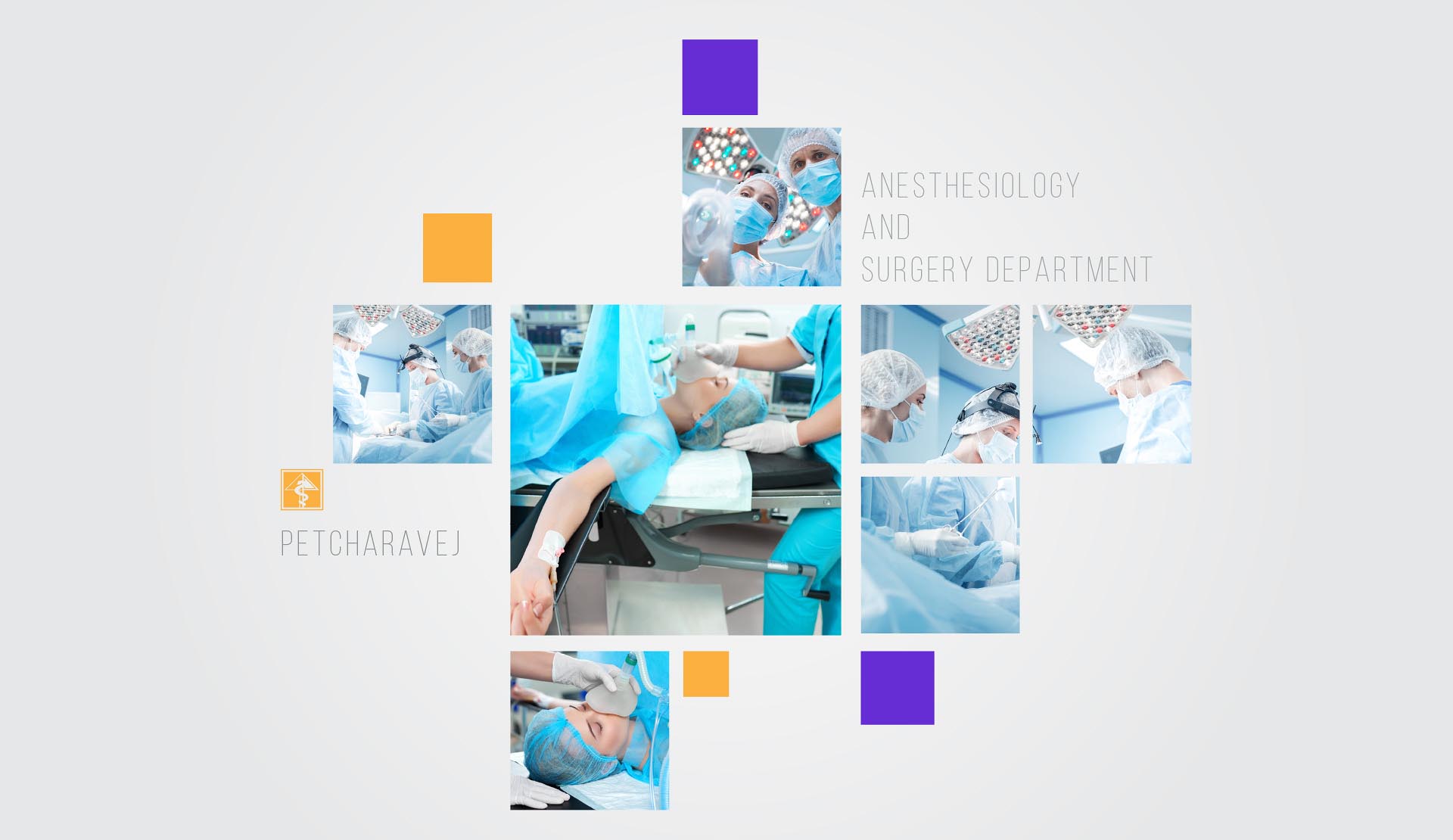 Anesthesiology and Surgery Department
Anesthesiology and Surgery Department

The anesthetic and operating room (OR) personnel have a crucial role in surgical procedures. Their responsibilities go beyond just administering anesthesia to patients. They are also important in taking care of patients before, during, and after surgical procedures. In this article, we will introduce you to the duties and responsibilities of the OR team at Petcharavej Hospital, and how they take care of their patients.
What is Anesthesiology?
The OR team, also known as the surgical team, is responsible for caring for patients during surgical procedures. The main responsibility of the OR team is to provide pain relief to patients and reduce their anxiety during surgical procedures. They are responsible for taking care of patients from the moment they enter the operating room, to monitoring and reporting on the patient's condition during the procedure, and caring for patients until they have safely recovered from the surgery.
The Science of Pain Management
In the past, pain management may have involved only the administration of painkillers without the use of tubes, or the idea of blocking the back may not have been widely known. However, nowadays, pain management can be divided into two categories:
-
General Anesthesia: The patient will be unconscious or asleep, not feeling anything during the surgery. The anesthesiologist will administer the anesthesia through an intravenous line or through inhalation via a mask. This type of anesthesia is used for major surgeries such as open abdominal surgery, certain bone procedures, heart and brain surgeries.
-
Regional anesthesia: The patient is not unconscious and can feel the body but will not feel any pain in the area where the surgery is performed. If the patient is still anxious, the anesthesiologist may also administer medication to relieve anxiety or stress during the surgery. This type of anesthesia is used for minor surgeries such as cyst removal, accidents, and so on.
Surgical Pain Relief Tools
- Oxygen : The operating room physician will provide oxygen during sedation and anesthesia, especially for patients with respiratory or cardiac failure and shock, as oxygen is essential. However, administering oxygen to infants born prematurely can cause blindness or respiratory failure. Even in adults, excessive or prolonged use of oxygen can be dangerous to the lungs.
- Anesthetic : The operating room physician will give the patient anesthetic to quickly induce unconsciousness and deep sleep, so the patient will not feel the intense pain from the surgical incision. But the important feature of anesthetic is that when the dose is gradually reduced and stopped, the patient, who is still unaware, will gradually regain consciousness without any impact on the brain.
- Nerve Block : For example, during labor in pregnant women, the doctor will use a wide range of antibacterial agents to block the back, followed by injecting a small needle with anesthetic and then inserting a large needle between the backbones to locate the injection site. The doctor will insert a small tube, and the patient will feel numbness from the chest down to the feet. Throughout the surgery, the patient will be conscious and able to hear the conversation of the operating room physician, but will not feel any pain at all.
How anesthesiologists take care of patients
-
Before surgery : The operating room physician will be responsible for planning the administration of anesthesia to the patient, taking into account the appropriateness of the medication for each individual patient, and preparing for the surgery by talking to the patient, taking a detailed medical history, and checking the results of a physical examination.
-
During surgery : The patient will be anesthetized by inhaling sedatives or being given appropriate injections. The medical professional will need to be close to the patient throughout the surgical procedure and monitor for any abnormalities that may occur in order to provide assistance and correct them until the surgery is completed safely.
-
After surgery : Once the surgery is completed, the operating room physician will continue to monitor and check the patient's condition to ensure safety, then transfer the patient to a recovery room. The patient's condition will continue to be monitored for a period of time.
If there is a necessary need for surgery, one of the important people that will give you confidence that you are safe and secure while you are unconscious or asleep is the anesthesiologist, also known as the "anesthesia doctor", who will take care of you throughout the surgery. So, you don't have to worry about this aspect.
____________________________________
To inquire for more information
Business hours: Open every day
Operating hours: 24 hours
Building/Floor: A/10
Contact number: 1390 ext. 255
Line Official : @petcharavej click
